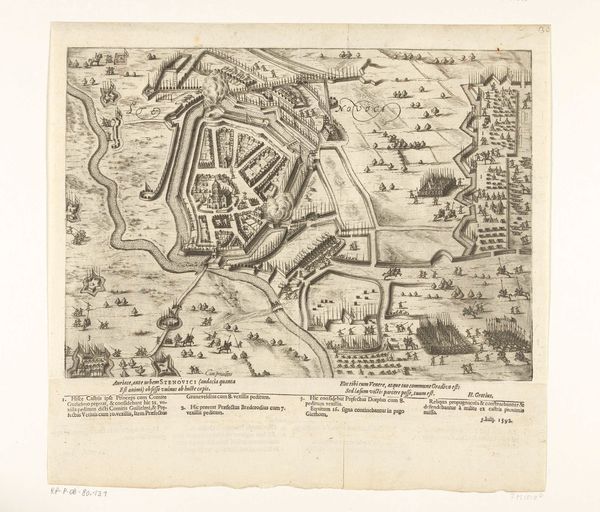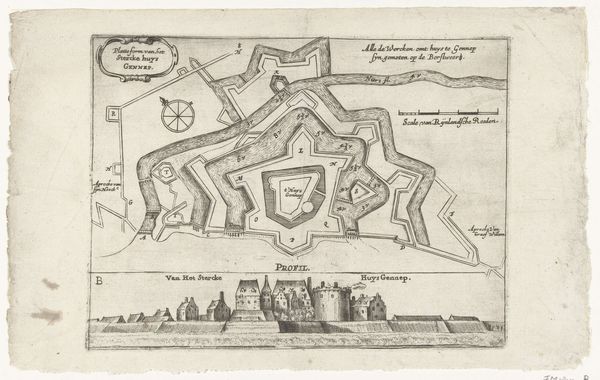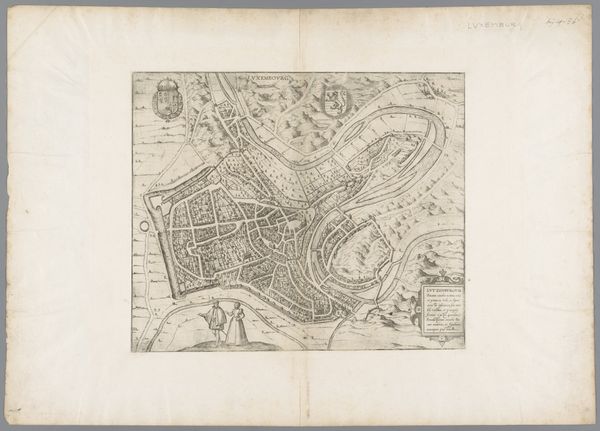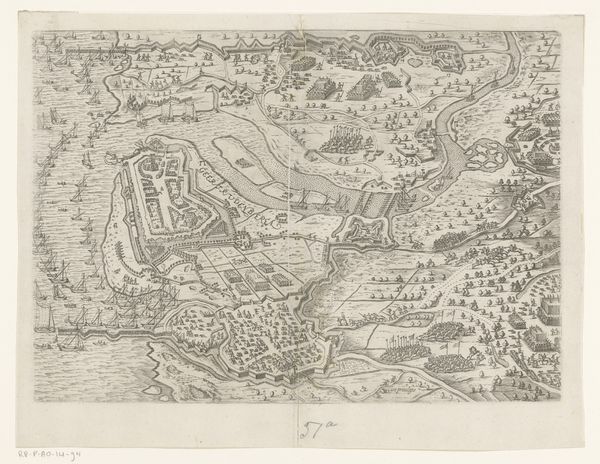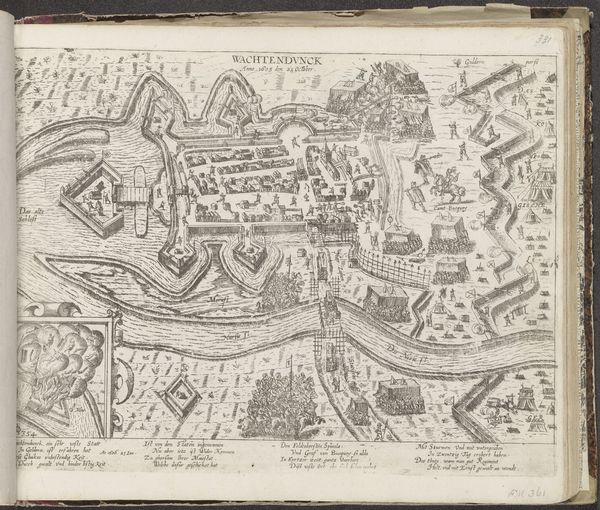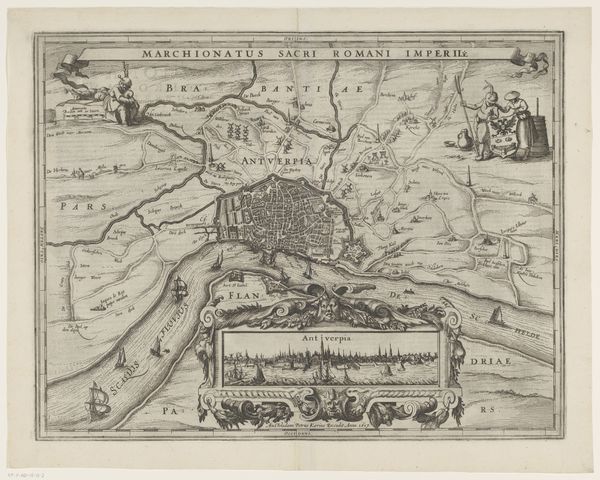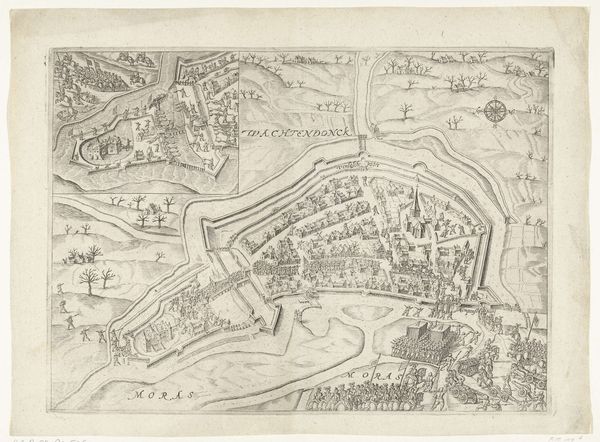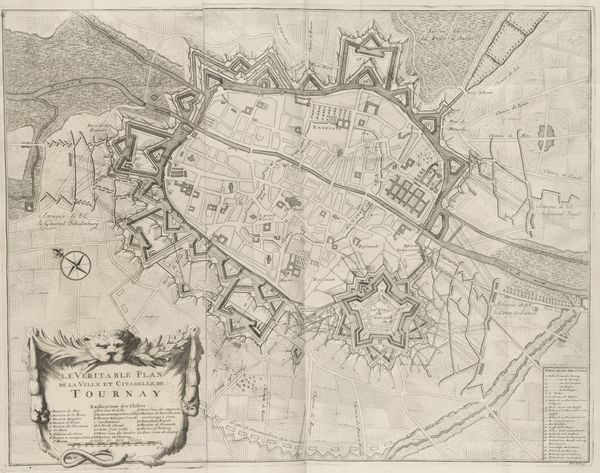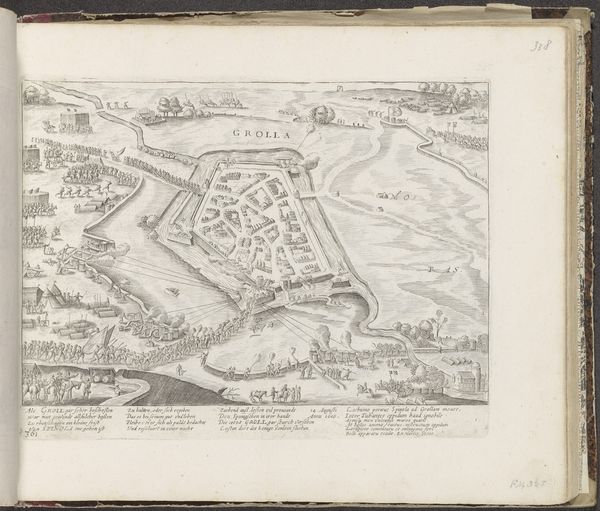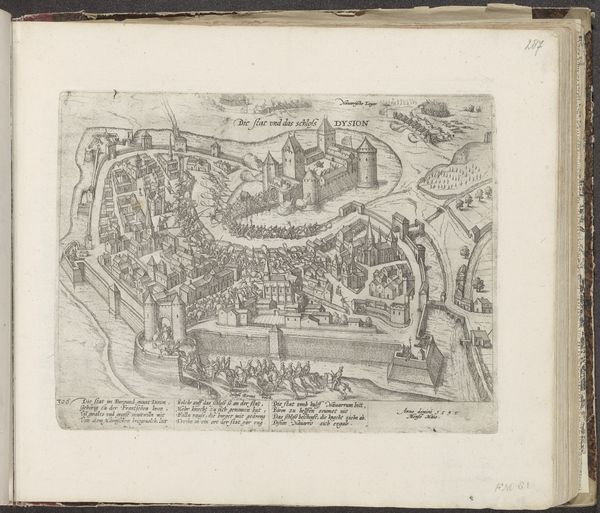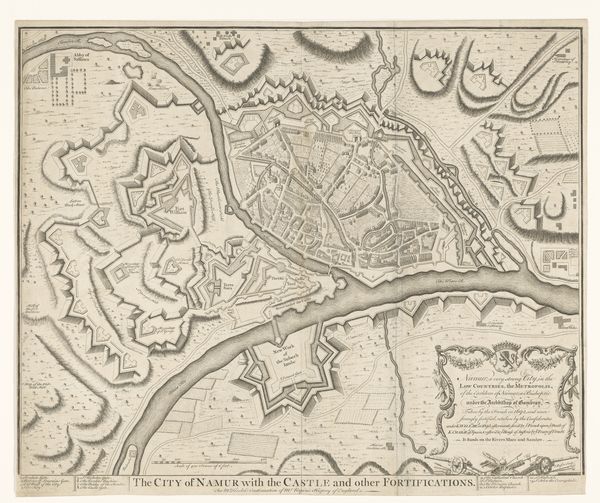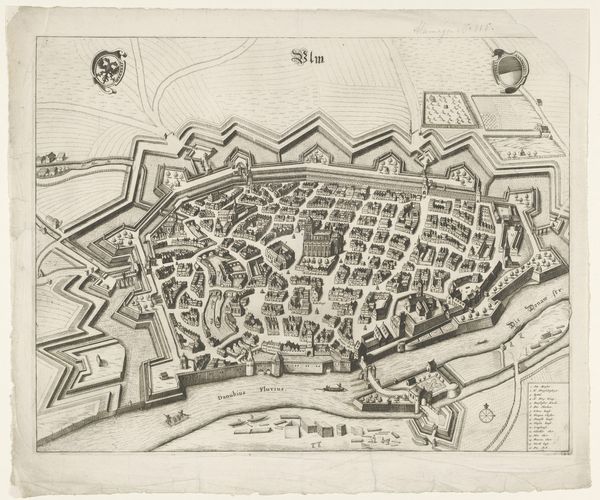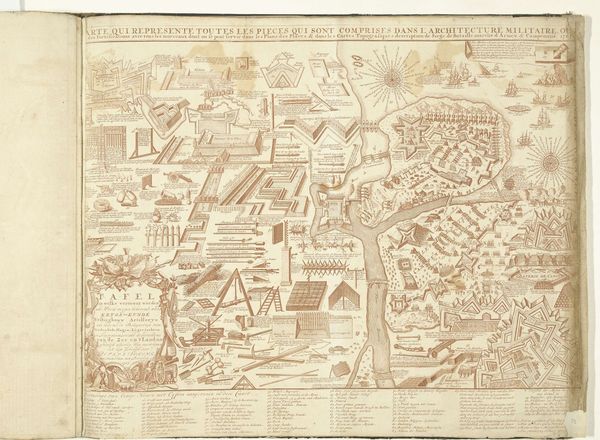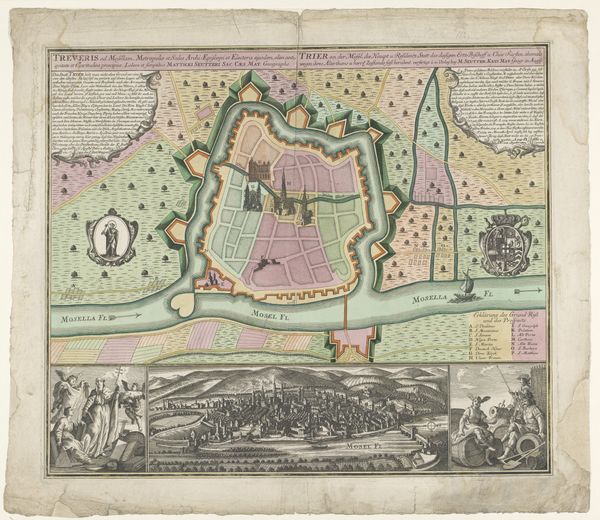
drawing, print, paper, ink, engraving
#
drawing
#
aged paper
#
toned paper
#
light pencil work
#
dutch-golden-age
# print
#
sketch book
#
landscape
#
paper
#
personal sketchbook
#
ink
#
sketchwork
#
geometric
#
pen-ink sketch
#
sketchbook drawing
#
cityscape
#
history-painting
#
storyboard and sketchbook work
#
sketchbook art
#
engraving
Dimensions: height 375 mm, width 430 mm
Copyright: Rijks Museum: Open Domain
Claes Jansz. Visscher created this print of the 'Plattegrond van het belegerde Sas van Gent' in 1644, using the etching technique. The process involves using a sharp needle to draw into a wax ground on a metal plate. The plate is then bathed in acid, which bites into the exposed lines. Consider the labor-intensive process: the artist would have to make a meticulous drawing, and then spend time carefully incising it into the plate. Every line, dot and detail on the print required a direct, physical action, a testament to human skill and endurance. Also, consider the social context. Prints like these were not just art objects; they were instruments of power. They disseminated information, shaped public opinion, and celebrated military victories. By documenting the siege of Sas van Gent, Visscher's print helped to construct a particular narrative of Dutch strength and resilience. The print bridges the gap between art, craft, and social history, reminding us of the intricate relationship between materials, making, and meaning.
Comments
No comments
Be the first to comment and join the conversation on the ultimate creative platform.
